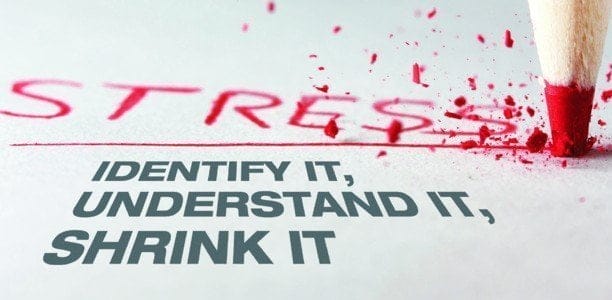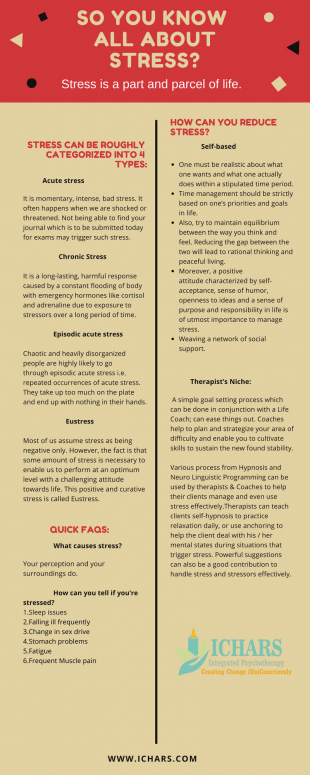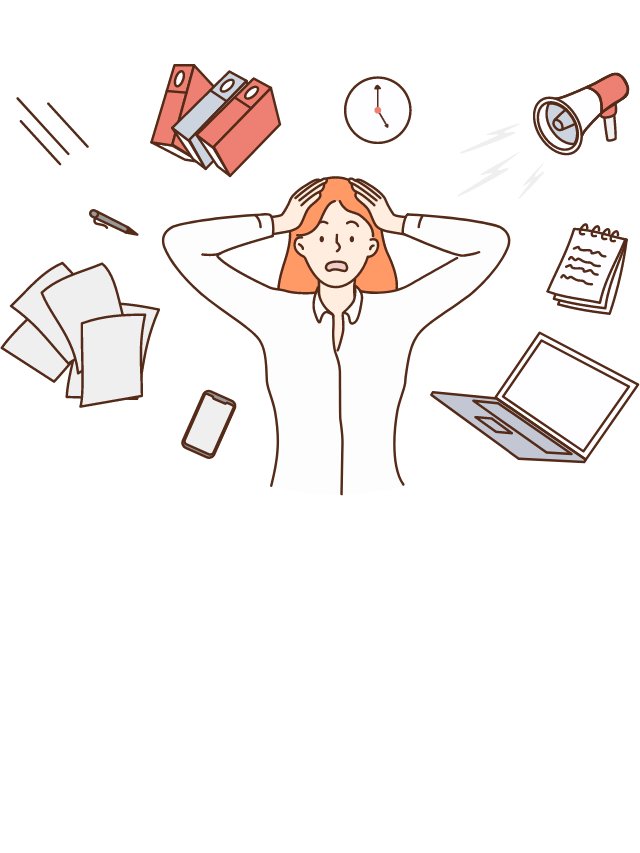Introduction
Stress is probably one of the biggest challenge that most people face today. Stress can be triggered by so many factors and yet there are few of us who are able to manage stress effectively. Let us delve deeper into understanding what is stress, what are its causes, how you can manage stress by yourself and if you are a therapist, what techniques can you use with your clients to help them manage stress effectively.
- Baby Maratha wailed as she saw her parents leave for their first date after she was born.
- “Math is so difficult!”, groaned a 10-year-old Rohan as he sat down breaking his pencil point in frustration.
- “I can’t find the perfect dress for the Fresher’s Party, Maa”, yelled an 18 year-old- Maya, throwing her hands in the air.
- “No, the job interview didn’t go as I planned”, cried a 25 year old Salim.
- “I think we should consider getting a divorce”, said a 50-year-old Kaizeen, biting her lip.
- “I wish that I died first”, murmured a 65 year old Jaspreet at his wife’s funeral.
The message is clear: Stress is a Part and Parcel of Life.
What is Stress?

The word stress is derived from the Latin word “stringi” which means “to be drawn tight”.
Accordingly, psychologist Richard Lazarus defines stress as a feeling experienced when a person thinks that the demands exceed the personal and social resources that the individual is able to mobilize.
It is an ongoing process that involves individuals transacting with their social and cultural environment, making appraisals of those encounters and attempting to cope with the issues that arise.
Types of Stress
Stress can be roughly categorized into 4 types:
- Acute stress is momentary, intense, bad stress. It often happens when we are shocked or threatened. Not being able to find your journal which is to be submitted today for exams may trigger such stress. This type of stress can sometimes be very dangerous as it leads to the experience of a tunnel-eyed vision that can push us over the edge and take abruptly irrational decisions like suicide. Also, acute stress may trigger uncontrollable bodily responses like heart arrest. Hence, the next time you think of playing a serious prank on someone “to just have fun”, take into account the possibility of causing someone acute stress.
- Chronic stress is long lasting harmful response caused by constant flooding of body with emergency hormones like cortisol and adrenaline due to exposure to stressors over a long period of time. It is by far the worst kind of stress to have as it causes a range of long-term healthcare issues ranging from anxiety, depression, and sleeplessness to digestive problems, weight gain and heart disease. For example, taking up a job which is not of your interest may make you feel restless and distressed round the clock thereby deteriorating your physical and mental health.
- Chaotic and heavily disorganized people are highly likely to go through episodic acute stress i.e. repeated occurrences of acute stress. They take up too much on the plate and end up with nothing in their hands. They dash around the place haphazardly, trying to meet various commitments, ending up achieving mediocre results and strained relationships.
- Now, most of us assume stress as having a negative angle only. However, the fact is that some amount of stress is necessary to enable us to perform at an optimum level with a challenging attitude towards life. This positive and curative stress is called Eustress. Thus, we can now confidently answer the question we often raise to ourselves when frustrated: Why do we have exams? To create eustress of course!
Quick FAQs on Stress:
What causes stress?
Stressors give birth to stress.
Major life events, daily hassles and traumatic events are the three main sources of stress. Marriage, breakups or unexpected death of a loved one are the kind of major life events that disturb the routine and cause upheaval.
It is believed that any event—whether good or bad, planned or unplanned—that requires us to change/ adjust our lifestyle causes stress. In fact, it is funny how our daily routine itself is dotted with stressors (hassles) down the lane.
Imagine the amount of frustration experienced:
- when there is a power cut or
- when you are squished inside a 9 o’clock local train or
- when a noisy marriage procession passes by while you’re at your study table.
Apart from these, sometimes we have to witness horrific trauma such as:
- building fire,
- earthquake or
- terrorist attack.
Unfortunately, post 9/11 attacks, a new condition called Childhood Traumatic Grief (CTG) has been identified among distressed children those who lost their parents or siblings in the traumatic event.
However, it is important to consider the differences caused in the experience of each of these events based on an individual’s personality. One’s level of resilience, outlook towards life and tragedy, behavior patterns, amount of self-realization and locus of control explains individual deviation in reaction to stressful encounters.
We need to remember that stress may be the result of the action of oneself (e.g. procrastination) or the other (e.g. bullying), but the effect of stress is always the result of our own reaction to it.
How can you tell if you’re stressed?
Your body will ring a bell. Body does that in the following ways:
- Sleep issues
- Falling ill frequently
- Change in sex drive
- Stomach problems
- Fatigue
- Frequent Muscle pain
And many more, in fact Psychosomatic diseases is a perfect example of Mind Body Connection wherein stress to a large extent becomes the key factor for physical disturbances. (more on that soon)
Coming to the point, can you reduce stress?
Of course!
Let’s elaborate.
The truth is that anything and everything can become a cause for stress. But what is stressful for one person may not be stressful for another. So instead of looking at what causes stress, let us look at the key component of all things that cause stress to a person and see if we can manage that.
Any guess what this key component is?
It is our perception about our self or the situation that leads to stress.
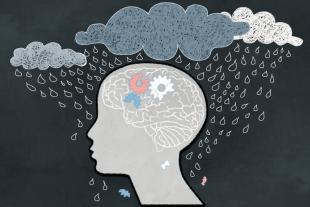
Very often we let the stressors take the better of ourselves. Not only do we end up getting in heated arguments with others, but also suffer from internal psychological conflicts as a consequence of stress.
Stressors impair our decision making skills causing us constant unrest and turmoil. We stay anxious for hours and days at end, harming our bodily systems as well as emotional health. Stress brings down our immune system to red alert, making us more contagious to any kind of diseases.
We often find it hard to concentrate and think straight when we let 5 of our assignments lie around the work desk till the deadline. And then when we push our bodies to stay up all night to finish our tasks, we let ourselves get fatigued and unprepared for the next day.
Consequently, we stay moody all the time, letting even smallest of the concerns turn into biggest of our nightmares. Thus, stress, like a magnet, attracts stress leading to an ultimate burn out.
How to Manage Stress?
Worry not! Of course there are ways to deal with stress and its damning effects. You don’t need to run and join yoga classes after reading this article. Although yoga, systematic relaxation techniques and certain meditation techniques help in effectively managing stress, there are other ways to do so too.
Self based techniques to manage stress:
From your end, you can start your journey towards a less stressful life by becoming an assertive person capable of saying ‘no’. A 4 point assertive script provided by psychologists Gordon and Sharon Bower is as follows:
- Describe the unwanted troubling behavior of the other.
- Express your feelings regarding it to the specific other.
- Specify the changes needed.
- Try to provide rewarding consequences for the change.
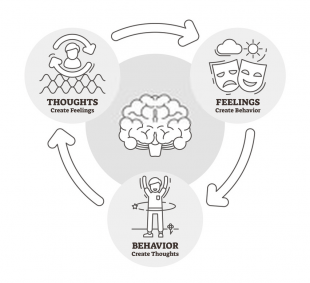
Moving ahead,
- One must be realistic about what one wants and what one actually does within a stipulated time period.
- Time management should be strictly based on one’s priorities and goals in life.
- Also, try to maintain equilibrium between the way you think and feel. Reducing the gap between the two will lead to rational thinking and peaceful living.
- Moreover, a positive attitude characterized by self-acceptance, sense of humor, openness to ideas and a sense of purpose and responsibility in life is of utmost importance to manage stress.
- Weaving a network of social support or even just one supportive relationship can be vital to our well-being. When we know that there is someone out there who cares and is available for communication when we need them, we feel secure from within, thereby, reducing stress levels.
- Apart from the mental applications and personality shifts that have been recommended so far, we need to remember that our body needs to thrive in lowly conditions and thus a nutritious diet and regular exercise is a must. The hormones produced in response to such care provide an exhilarating experience and protection from ill-effects of stress.
We should always remember that if none of these techniques work or if you are not able to apply these techniques, professional help is just at an arm’s length. There is nothing to be ashamed of in approaching therapy when in need. Everyone has a different take on life and different situations to deal with. If you find yourself in a cobweb of stressors that doesn’t seem to unwind itself with your efforts and support of friends, then a clinician is the best cure to your ache.
Therapist’s Niche: How therapists can help manage stress?
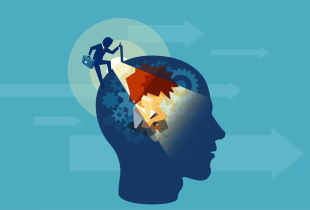
Since the key component that leads to stress is perception, a therapist needs to help client identify and work with the perception that is resulting in stress.
This perception may be about self or about situations or about people or about our future.
It all begins with a mismatch between what a client expects from life and what he/she is experiencing in life. This experience may be in terms of the outcomes they wish to achieve or in terms of their thoughts, feelings or emotions that they wish to control / change but are not able to.
Different techniques you can use to help clients manage stress effectively
- Helping the client understand stress with the help of the Model of mind and the FLIP model is a good starting point. These models also enable the client to understand how the sessions will help the client manage stress effectively.
- Except in cases where the stress is resulting from a past trauma or is causing intention negative emotion, a simple life coaching process can ease things out. We recommend the amazing SO FACE THE SEA™ coaching model in combination with Meta Model for the same. These model takes care of not just helping the clients identify their desired outcomes and hindrances in terms of lack of skills, resources and mental state (thoughts, emotions…) that is leading to the stress but also create systematic plan to overcome these hindrances.
- Next use different reprogramming techniques from Hypnosis, NLP and CBT like If-then statements, SWISH and Anchoring to help the client change their stress inducing thoughts and feelings.
- Use Hypnotic Suggestions and Future Pacing to help the client develop motivation and positive expectancy about future.
- In case high level of stress still persists in a client, check for past experiences or intense emotions that may be the driving force behind the stress. This can be done with the help of de-layering technique like SVIT™.
- Various advanced processes like inner child, re-imprinting, timeline, regression from Hypnosis, Neuro Linguistic Programming and Metaphors can also be used to help clients get over the past experiences and deal with suppressed emotions.
- If the primary cause of stress is conflict in relationship: Paris Window, Perceptual Position and Hypnodrama can also be used.
- Finally remember to help the client develop skills to deal with stressors more effectively and teach them self-hypnosis / anchoring / EET to enable them to get into clam and relaxed state quickly and easily.
If you are not aware of some of the techniques that we have referred to, you must check out the Cognitive Hypnotic Psychotherapy™ Program. It is probably the only program that seamlessly integrates different approaches to psychotherapy (cognitive, behavioural, psycho-dynamic and humanistic) into a single comprehensive curriculum.

